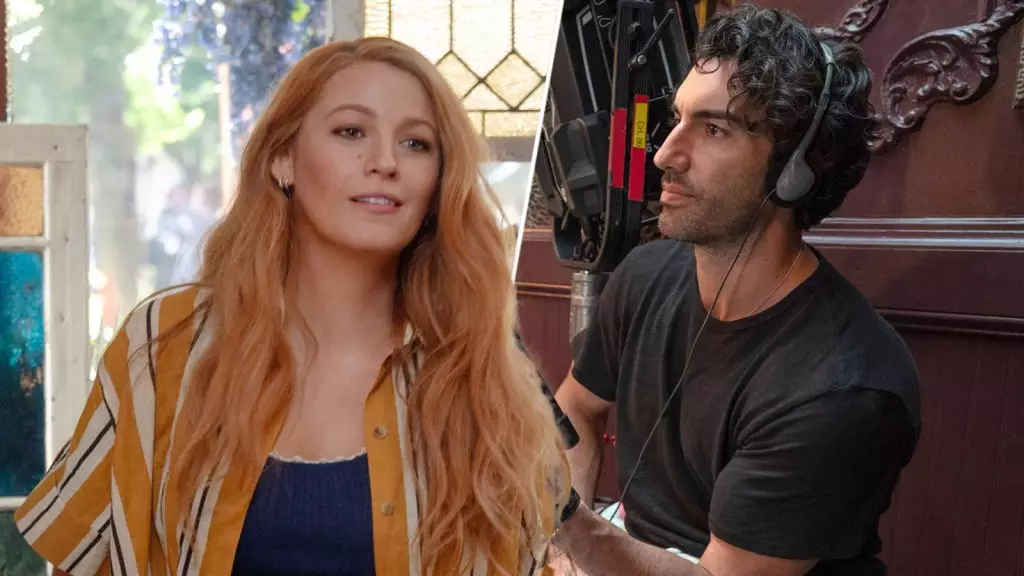The entertainment industry often showcases glamour and charm, yet beneath the surface lie complex relationships laden with power dynamics, particularly in the wake of the #MeToo movement. This reality has recently been brought to light by Blake Lively’s controversial lawsuit against her co-star Justin Baldoni. The allegations are not merely personal grievances; they encapsulate significant concerns about professional integrity, respect, and the often predatory nature of Hollywood’s workplace environment.
The lawsuit, which has garnered significant media attention, outlines a series of serious accusations against Baldoni, including sexual harassment and a coordinated campaign of retaliation targeting Lively. Filed with the California Civil Rights Department, the suit claims that Baldoni, along with his production company Wayfarer Studios, employed a “sophisticated press and digital plan” to undermine Lively’s credibility after she voiced her concerns regarding inappropriate behavior on set. This allegation of retaliation is particularly troubling, as it suggests a larger pattern of silencing individuals who dare to speak out against misconduct in a high-stakes environment.
Central to Lively’s complaint is her account of an all-hands meeting that was purportedly held to address Baldoni’s alleged inappropriate behavior. Her testimony paints a vivid picture of discomfort and unease, characterized by Baldoni’s purportedly disruptive comments and actions. According to the lawsuit, this was not just a personal dispute, but a situation ripe with implications for workplace culture itself. The ensuing fallout reportedly cost Lively several professional commitments, including her scheduled role as the host for the Saturday Night Live Season 50 premiere, suggesting significant repercussions on her career stemming from the alleged harassment.
The legal ramifications of Lively’s allegations extend beyond personal experiences and delve into the broader landscape of professional consequences. The lawsuit indicates that Lively’s ability to participate in public events became severely limited as she attempted to navigate the fallout from her allegations. For instance, she canceled a significant corporate event for her haircare line, under duress that attending would necessitate discussing her traumatic experiences on set. This circumstantial restriction not only impacts her professional viability; it raises crucial questions about how victims of harassment can protect their careers while seeking justice or accountability.
The dynamics of privilege within the industry are also at play. Justin Baldoni’s immediate backlash includes being dropped by his talent agency, WME, which previously represented him but currently represents Lively. This swift consequence emphasizes the growing accountability demanded by the industry, but it also raises deeper questions about how quickly reputations can be dismantled versus built, and whether those accused often have the means and resources to combat them through counter-narratives, as indicated by Baldoni’s legal representative labeling Lively’s claims as a “desperate attempt” to salvage her reputation.
In stark contrast to the depicted allegations, Colleen Hoover, the author of the source material that inspired the film adaptation, publicly voiced her unwavering support for Lively, reinforcing the notion of solidarity among women facing adversity. Hoover described Lively as “honest, kind, supportive, and patient,” showcasing a camaraderie that often becomes essential in the battle against entrenched industry practices. Such endorsements can provide critical strength and validation for individuals navigating the daunting task of confronting powerful figures.
While the outcome of this lawsuit remains to be seen, what is clear is the urgency of change in an industry that has for too long tolerated toxic work environments. The lawsuit highlights a critical juncture not just for the parties involved, but for Hollywood as a whole, pushing industry stakeholders to reassess their protocols regarding harassment and the protection of those who come forward with allegations. As these narratives unfold, they reflect a broader cultural shift towards accountability and recognition of the complex layers of power, vulnerability, and resilience in storytelling—both on and off the screen.

